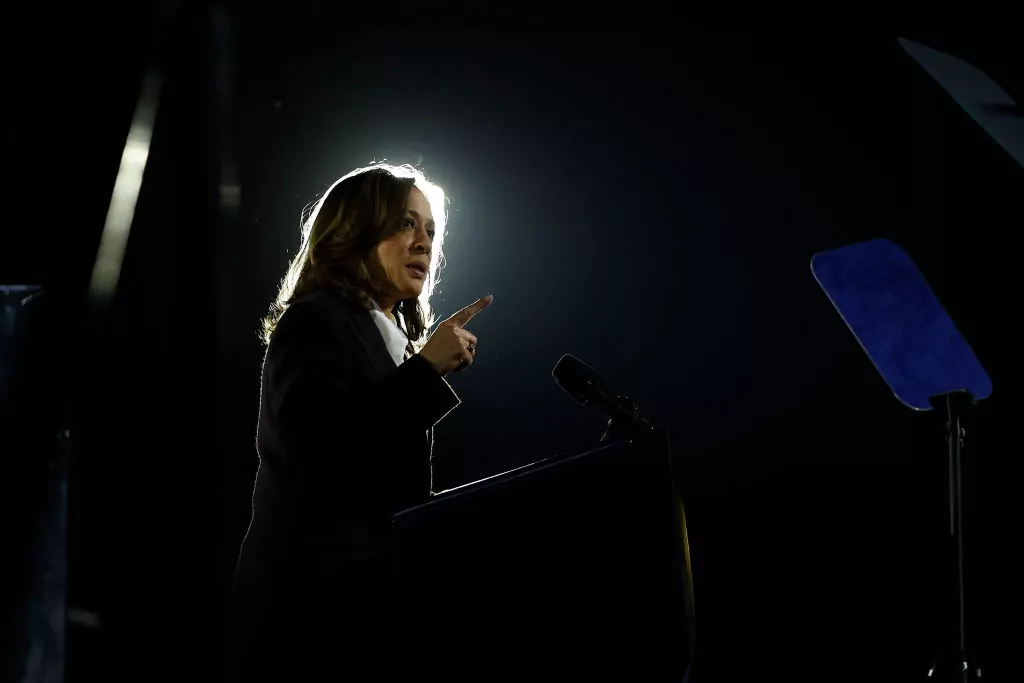
The Harris campaign burned through the money in just 15 weeks, operating on a highly compressed schedule on the heels of President Joe Biden dropping out of the race and passing the torch to the vice president. Following her loss to President-elect Donald Trump, Harris has come under significant scrutiny over her campaign’s payments to celebrities and various companies for events, particularly after a Washington Examiner report in November that cited a million-dollar disbursement to Oprah Winfrey’s Harpo Productions.
“There certainly needs to be a huge conversation about how to connect with voters rather than throwing money at famous people,” said Jon Reinish, a Democratic strategist. “The spending and the strategy reflects stale, out-of-touch thinking by a Democratic elite class of Beltway consultants who haven’t mastered media, messaging, or actually reaching and turning out voters in a dozen years.”
Now, amid infighting within the Democratic Party, the consultant class is seeking to determine what went wrong with the Harris campaign and what can be learned from her loss despite her massive cash advantage. Top advisers to Harris are under fire from progressives for not taking accountability for her loss. Instead, her team has justified the defeat by pointing to the short time frame of Harris’s candidacy and suggesting that Harris was not in a position to distance herself from Biden’s unpopular presidency due to her role as his vice president.

The Harris campaign and aligned political action committees spent hundreds of millions of dollars on advertising — which has long been a key way for candidates to connect with voters across the country.
The main outside group supporting Harris, Future Forward, was an “ad-testing factory” and notably paid $10 million to companies linked to the group’s founders, the Washington Examiner reported.
However, political strategists said it was Harris’s messaging that failed to resonate with voters on matters such as immigration and the economy, which were top concerns, and opened Democrats up to vulnerability. Trump also capitalized on the matter of political correctness, framing Harris and Democrats as out-of-touch on cultural matters and neglecting kitchen-table concerns such as increased grocery prices from inflation.
“She never said what her administration had done wrong in public, and when she entered the election, the majority of the public had decided her administration was failing,” said Brad Todd, a Republican strategist and CNN commentator. “You have to meet voters where they are, and she did not do that. She was never willing to contradict her own base to appeal to swing voters.”
In the final weeks of her presidential campaign, Harris spent well over $20 million on event production, with millions of dollars flowing to companies owned by entertainers for star-studded appearances, the Washington Examiner reported.
Money went to companies owned by Beyonce, John Legend, Ricky Martin, Fat Joe, Flo Milli, Katy Perry, and Christina Aguilera, records show. Such spending, in particular, has sparked conversations among Democratic operatives about whether paying celebrities really moves the needle or, to the contrary, was a waste of resources: A turn-off for voters that did not centralize tangible matters affecting their day-to-day lives.
“This will be a classic example of what not to do in campaigns,” Democratic strategist Hank Sheinkopf, a former adviser to President Bill Clinton, told the Washington Examiner.
“It became a campaign for celebrities,” Sheinkopf said. “The only thing these events did was to prove Democrats are elitists. They didn’t provide any real-time assistance.”
Reinish, the Democratic strategist, thinks the Harris campaign’s troubles show it’s time for the Democratic Party to move on from the same Obama- and Biden-era consultants the Harris campaign paid significant amounts of money to this election cycle.
Ezra Klein, the popular liberal commentator, said the quiet part out loud days after the election.
“The Obama coalition is over. It is defeated and exhausted. What comes next needs to be new. That means going to new places and being open to new voices,” he wrote in the New York Times.
It is time for a new generation to lead the party, Reinish said, pointing to a New York Times story on how some Harris campaign staffers were forced to disobey top aides to focus on grassroots Get Out the Vote efforts targeting minorities.
The story, he said, illustrates how top party brass were deeply controlling of the campaign’s resources and how they were used.
“They are not reaching the voters they needed to turn out,” Reinish said. “But they were still spending millions of dollars on celebrity events.”
To Zach Hunter, a Republican strategist and former vice president of the Congressional Leadership Fund, Harris’s loss is not as simple as a mathematical equation.
CLICK HERE TO READ MORE FROM THE WASHINGTON EXAMINER
Harris, in the telling of Hunter, was doomed all along. No amount of money would have actually fixed her policy and messaging troubles with voters struggling in Biden’s America, he said.
“Voters lived the Biden-Harris agenda for four years, and then Democrats spent $1.5 billion trying to convince them not to believe their lying eyes and their pocketbooks,” Hunter put it.






